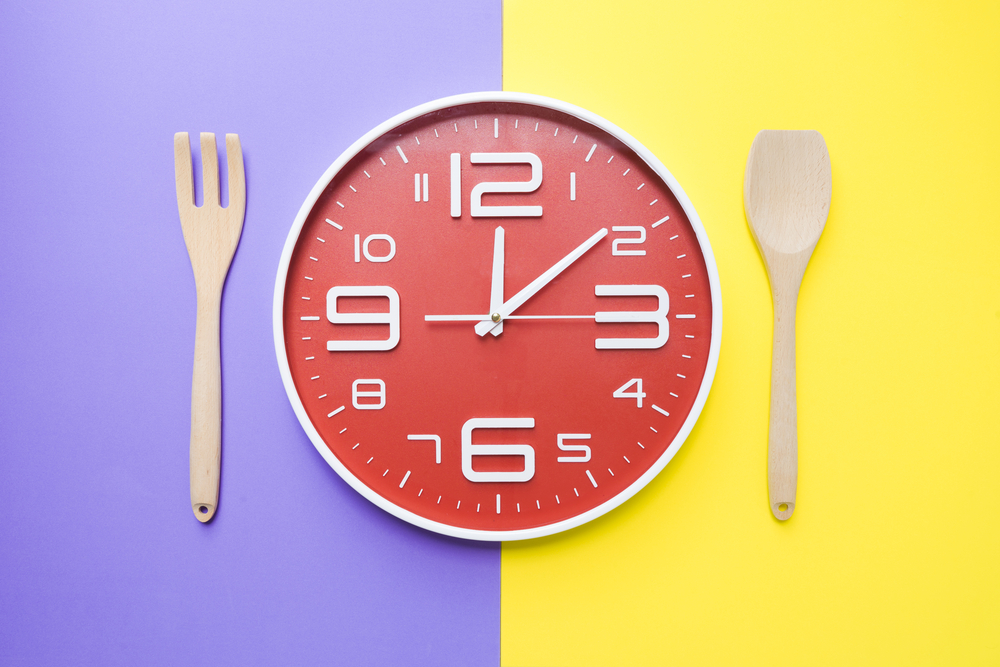When You Eat Can 'Reset' Your Biological Clock

Want to reset your biological clock? Try eating at a different time of day.
New research suggests that shifting your meal time can also shift your body's internal clock, meaning that recovering from jet lag or adjusting to a shift-work schedule might be easier if you also adjust your eating times.
The body's biological clock, or circadian rhythm, is controlled by a "master clock" found deep in the brain and called the suprachiasmatic nucleus, according to the study, published June 1 in the journal Current Biology.
But other clocks, called "peripheral clocks," are found throughout the body. These peripheral clocks are essentially molecules in cells that respond to signals from the master clock and help control certain metabolic functions in those cells' region of body. Clocks in the liver and pancreas are involved in controlling rises and falls in blood sugar levels, for example. If peripheral clocks fall out of sync with the master clock, it can result in problems with a person's metabolism. [10 Things You Didn't Know About You]
Researchers know that exposure to light at the appropriate time and the use of melatonin supplements can help the master clock in the brain adjust to new time zones, said senior study author Jonathan Johnston, a chronobiology and integrative physiology researcher at the University of Surrey in England. "But light and melatonin probably have little direct effect" on the metabolic rhythms that are controlled by the body's peripheral clocks, he said.
In other words, although a person may nudge his or her master clock toward a new time zone by getting exposure to light at the right time, not all the clocks in the person's body will catch up right away.
The peripheral clocks that control blood sugar levels influence how much sugar is taken from the blood and how much is released back into the blood, Johnston said.
Sign up for the Live Science daily newsletter now
Get the world’s most fascinating discoveries delivered straight to your inbox.
"The way the body processes a meal varies over the day," Johnston said. For example, when a person eats at night, blood sugar levels rise higher and stay elevated for longer compared with how blood sugar levels respond to a meal eaten earlier in the day.
In the new study, Johnston and his team found that this relationship can also work in the opposite direction: Changing the time of day that a person eats can shift the circadian rhythm of blood sugar levels.
To study the effects of meal timing on circadian rhythm, the researchers invited 10 healthy men to live in a lab for 13 days so the researchers could closely observe how the subjects' bodies responded to different eating schedules. The men wore monitors to collect data on their sleep. For the first three days of the study, the men were given breakfast 30 minutes after waking up, followed by lunch 5 hours later and dinner 5 hours after that. All of the meals had the same number of calories and the same amounts of carbohydrates, fat and protein.
After three days on this schedule, which the researchers called the "early meal" schedule, the men were not allowed to sleep for 37 hours. During this time, the lights in the lab were kept dim, so the men didn't experience the changes in light that might signal the time to their biological clocks. They were given food on an hourly basis, but nurses in the lab nudged the men if they looked like they were dozing, Johnston said. [The Spooky Effects of Sleep Deprivation]
Then, the eating schedule began again, but this time, instead of eating 30 minutes after waking up, the men didn't eat until they had been awake for 5 hours. This "late meal" schedule went on for six days, and then the men repeated the 37-hour period of being continuously awake.
The impact of meal timing
The researchers found that after the men shifted their meal schedules by 5 hours, the rhythms of their blood sugar levels also shifted by 5 hours, Johnston said.
During the participants' 37-hour periods of being awake, the researchers measured various components of the men's circadian rhythms: Blood was drawn every hour to look at levels of certain hormones and gene expression, and every 6 hours, a small sample of fat tissue was taken from the buttocks.
The researchers found that, aside from the changes in the rhythm of blood sugar levels, many other components of the men's circadian rhythms didn't change. For example, there were no changes in the normal rises and falls in melatonin (the sleep hormone) or cortisol (the stress hormone) after the late meal schedule compared to the early meal schedule. This suggests that the changes observed after the late meal schedule were due to changes in the peripheral clocks and not the master clock, which controls hormone release, Johnston said.
The new findings suggest that to adjust to a new time zone or a different work schedule, a person can add "appropriate timed" meals to his or her regimen, in addition to exposing himself or herself to light at the appropriate times, Johnston said.
"A general strategy might be that people could adjust their meal times to the destination time zone before a flight," Johnston said. "It should be stressed, however, that this is speculation at the moment," as more studies are needed to confirm the findings, he added.
Johnston also noted that the findings may be more valuable to shift workers than people adjusting to jet lag. "For most people, jet lag is a fairly short-term inconvenience and not a long-term health problem," he said.
Originally published on Live Science.











